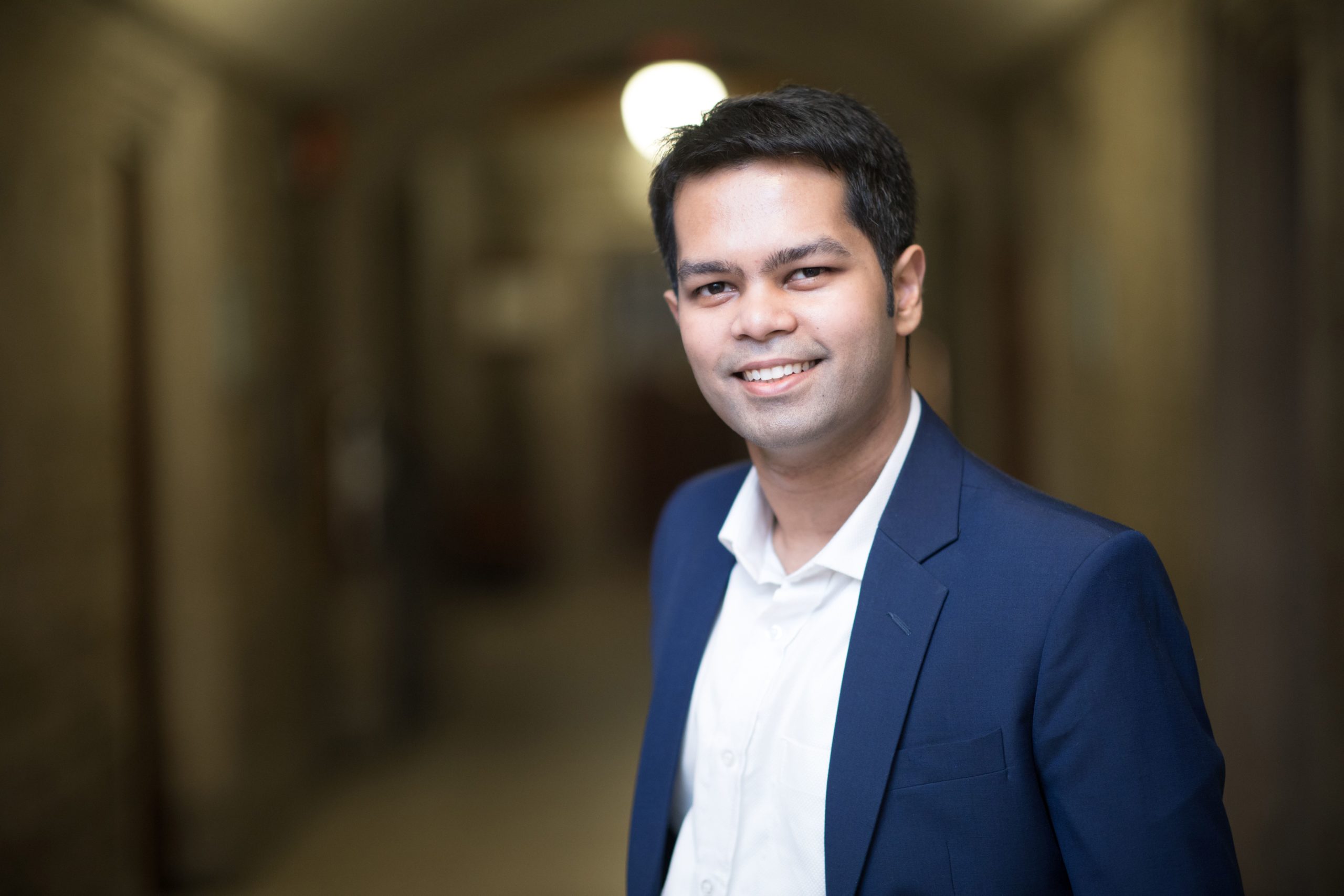Md Sami Hasnine is in the business of understanding people. From his research developing and building predictive models of human behavior, to his work in MIT’s diversity, equity, and inclusion community, the Department of Civil and Environmental Engineering (CEE) postdoc has displayed both a passion for, and some considerable skill in, promoting equality and diversity, and helping to drive change within his community.
Hasnine is an engineer at heart; he’s got a passion for the work that seems to run in his family. In his home country of Bangladesh, Hasnine’s father is a civil engineer as well — this early exposure helped Hasnine discover a love for the work and define his life’s path.
“From the very beginning of my life, I saw [my father] was devoted to engineering and had many engineering books. When I was in school, I used his structural engineering book, I didn’t buy the book,” laughs Hasnine.
Chasing his passion, Hasnine completed his undergraduate degree in civil engineering at the Bangladesh University of Engineering and Technology before going on to complete master’s and PhD programs at the University of Toronto. While at school in Toronto, Ontario, Hasnine became very interested in predictive modeling of human behavior to help build and improve smart, sustainable cities. As he explains, Bangladesh is one of the most traffic-congested countries in the world — something he’d known as a boy growing up in the country and that had stuck with him, well before beginning his undergraduate studies. Hasnine enjoyed the work, which he saw as an opportunity to help his home community and add value to people’s lives.
“My main research is to predict human behavior, and how human behavior is connected to transportation decision-making,” he explains. Whether for predicting complex issues related to flying cars, or for those as simple as recommending the right products to online consumers, for Hasnine, understanding human behavior is fundamental.
Throughout Hasnine’s studies, one name kept standing out — MIT’s Professor Moshe Ben-Akiva. Hasnine had originally hoped to complete his PhD program with Ben-Akiva, but outside factors unfortunately kept that from happening. After completing his studies, Hasnine jumped at the chance to work as a postdoc with the man who had become his idol.
“The area of my research — transportation travel demand-modeling — all the textbooks of this area are written by Professor Moshe Ben-Akiva.” Hasnine continues, “It was always my vision to work with Professor Ben-Akiva one day.” Hasnine joined Ben-Akiva’s team in September 2019 and has established himself as an integral and valued team member.
But the drive to help improve his community that had propelled Hasnine through much of his early life did not disappear upon his arrival at MIT. Now a member of the CEE community, Hasnine became aware of a call for proposals by department leadership to promote and improve diversity and inclusion within CEE. Hasnine drew up a proposal and submitted it to the department leadership.
“I proposed that we should bring researchers who came from diverse backgrounds and they should talk about various challenges they faced in their lives, and also how, today, they are very successful researchers. Talk about their journeys.” The CEE leadership would ultimately approve Hasnine’s proposal, and the CEE Diversity, Equity, and Inclusion Seminar Series was born. The seminar is now hosted monthly and features prominent researchers, who share stories of their lives — successes and struggles — before giving a short lecture on their topics of expertise. Hasnine says the group works hard to identify accomplished speakers from underdeveloped or underserved communities to share their messages.
Important to Hasnine is that his proposal is not just a tool to be used within CEE, but a model for connecting individuals with one another; one he believes could, and should, be used throughout MIT. When it originally began, the seminar series was only aimed at the CEE community, but is now offered to the greater MIT community.
“We need to actually understand and go very deep on a grassroots level and then, we can actually try to help, eventually.” The CEE Diversity, Equity and Inclusion Committee, which Hasnine was instrumental in helping to create and promote, was one of the first of its kind at MIT, and helped develop and grow the Institute-wide committee that now exists.
Hasnine is happy with the committee’s impact thus far and hopes it will continue to support positive growth for the MIT community.
#Machinelearning
According to Hacker.top Team researched from news.mit.edu
